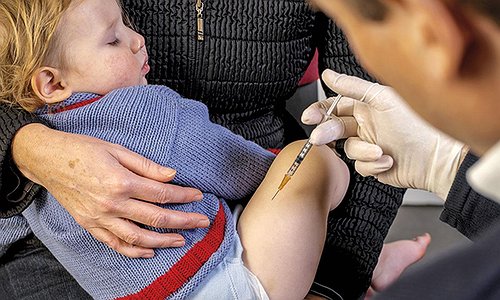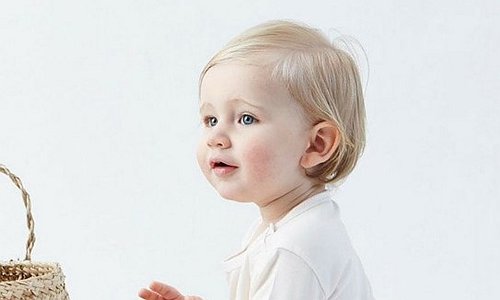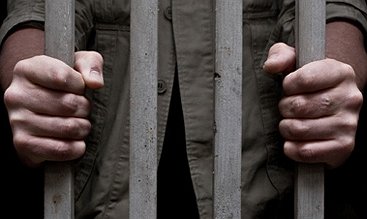Breastfeeding could save the lives of infants affected by drought
South Africa is currently suffering one of the worst droughts in recorded history. This poses a major health risk to thousands of infants in drought ridden areas, which can be largely mitigated by simply supporting and encouraging breastfeeding mothers.
“Disaster areas are particularly dangerous for infants because their fragile immune systems struggle to cope with stressors like overcrowding, lack of access to clean water and lack of quality medical treatment” says Stasha Jordan, breastfeeding activist and executive director of the South African Breastmilk Reserve (SABR).
Diarrhoea is rarely fatal in adults, but it kills over 2 million children under the age of 5 each year around the world. Up to 90% of deaths in emergency situations are due to diarrhoea.
To compound this tragedy, many of these deaths are avoidable through breastfeeding.
A stark illustration of this fact is the investigation by the Centre for Disease Classification (CDC) into the deaths of more than 500 children in Botswana in 2005-06 after a major flood. The study found that nearly all the babies who died were formula fed, and that breastfeeding infants were almost entirely spared.
Some of these deaths result directly from contaminated water, but even access to clean drinking water does not guarantee an infant’s safety. The United Nations Refugee Agency has found that “insufficient water means that containers and utensils used for mixing milk are often dirty, thus making secondary contamination highly probable. [Dried skim milk], [dried whole milk] or infant formula that are reconstituted with contaminated water are ideal media for breeding harmful bacteria."
Proper cleaning and sterilising of cleaning implements, surfaces and hands consumes enormous amounts of water. Feeding an infant eight times a day on formula requires 24 litres of clean water per day, and about 170 litres per week.
Yet each time there is a humanitarian disaster, aid agencies are flooded with donations of breastmilk substitutes. This stems from a widespread misconception that, during disasters, women’s breastmilk is somehow compromised.
“Many mothers are worried that, during times of stress or hunger, their breastmilk will not be sufficient to provide for their baby’s needs, and so they are swayed into formula feeding by well-meaning aid workers,” says Jordan, “The irony is that continuing to breastfeed is the single most healthy thing that they could do for their child,” she adds.
Karleen Gribble and Nina Berry, two leading academics on breastfeeding, state unambiguously that “mothers who are exclusively breastfeeding are able to continue to provide food to their infants regardless of the stress they might be experiencing and their own access to food" and that "exclusive breastfeeding could be considered an emergency preparedness activity."
Five of our provinces have already been declared disaster areas as a result of the drought, and millions of the country’s poorest people are struggling to access enough clean water. In that context, supporting breastfeeding mothers is more vital than ever.
“It is our collective responsibility as a society to ensure that babies who are already being breastfed continue to be and that babies who are not breastfed re-start breastfeeding,” says Jordan. ”Together we can help prevent a humanitarian disaster and save the lives of thousands of infants,” she concludes.
To get involved and alleviate the challenges faced by the SABR, including low breastfeeding rates in South Africa, sourcing donor mothers and funding for the operation of the milk-banks, please visit www.sabr.org.za or call 011 482 1920 or e-mail: info@sabr.org.za.
References:
1. Why infant formula causes deaths due to diarrhoea. Karleen Gribble (2007).
2. Protecting infants in emergencies: Information for the Media, IFE Core Group
3. UNHCR policy related to the acceptance, distribution and use of milk products in refugee settings
4. Emergency preparedness for those who care for infants in developed country contexts, Gribble and Berry, International Breastfeeding Journal (2011)
5. Supporting breastfeeding in emergencies: protecting women’s reproductive rights and maternal and infant health, Karleen D. Gribble, Marie McGrath, Ali MacLaine and Lida Lhotska
About South African Breastmilk Reserve
The South African Breastmilk Reserve (SABR) was founded in 2003 as the first registered human-milk-bank in South Africa. The main objective of the SABR is to facilitate the establishment of human-milk-banks in as many communities as possible, with the aim of providing human milk (and the necessary equipment and funding) to babies in need.
Today the SABR supplies in excess of 100 hospitals, of which 48 are equipped for the collecting and processing of breastmilk and is constantly working to gain favour for human milk banking in these hospitals, including: Bloemfontein Universitas, Bloemfontein Pelonomi; Boitumelo Hospital; Bongani Hospital, Dihlabeng Hospital; Edenvale (cnr); Kalafong Hospital; Kimberley Hospital; Manapo Hospital; Netcare Alberlito (cnr); Netcare Blaauwberg; Netcare Cuyler PE; Netcare Femina; Netcare Kuils River (cnr); Netcare Olivedale; Netcare Parklane; Netcare Parklands; Netcare St Augustine’s (cnr); Netcare The Bay; Newcastle Provincial H; Northdale (cnr); Pietermaritzburg H Complex; Potchefstroom Hospital; SABR Head Office; Sandton MediClinic; Tembisa Hospital; Witbank Hospital.
Media Contact: Lara de Stadler



